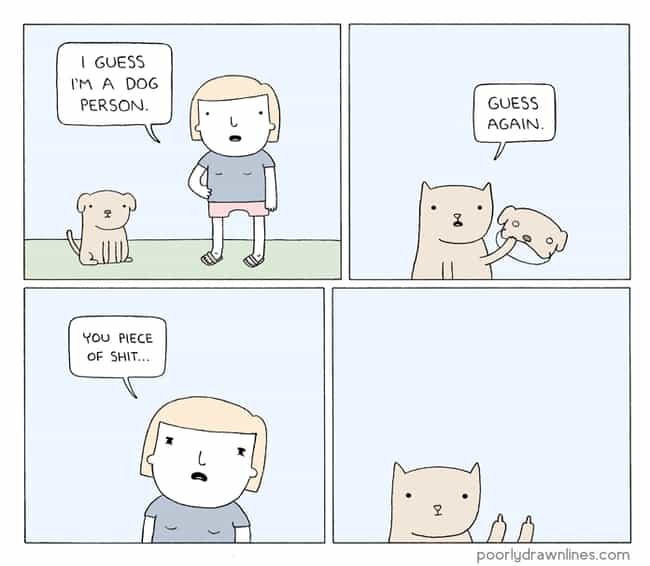Crazy Rich Asians, by Kevin Kwan
When New Yorker Rachel Chu agrees to spend the summer in Singapore with
her boyfriend, Nicholas Young, she envisions a humble family home and
quality time with the man she hopes to marry. But Nick has failed to
give his girlfriend a few key details. One, that his childhood home
looks like a palace; two, that he grew up riding in more private planes
than cars; and three, that he just happens to be the country’s most
eligible bachelor.
On Nick’s arm, Rachel may as well have a
target on her back the second she steps off the plane, and soon, her
relaxed vacation turns into an obstacle course of old money, new money,
nosy relatives, and scheming social climbers.
Two days in and I'm already burned out on book reviewing! This is going to be rough year. Only 363 days left! I actually saw the movie last year when it came out, and it was charming - full of attractive people wearing expensive clothes and steely-eyed ladies discarding men like last week's clothes. Or yesterday's clothes. However long you wear clothes. No judgment here!
I hate to be this person, but my impression of the book definitely suffers from comparison with the movie. The movie consolidates people and storylines, cuts down on the cartoon-y villainy and grounds the story more. And stylistically, the footnotes, while a fun commentary in the beginning, kinda dragged as you kept going. I didn't need the Malay/Mandarin/Hokkein translations when it was perfectly understandable from context, and I actually skipped some of them since I didn't realize they were footnotes. But I didn't want to skip the footnotes completely, since some of them were context as well.
The other style issue I had with the book, which is maybe resolved in the later books, is that because the chapters skip around with viewpoints, it feels a little bit like multiple stories are going on, but some of them get (extremely) short shrift. The Nick/Rachel is obviously the main line, but Astrid's ongoing problems with her husband also come up frequently, and I know they're a big part of the next books, but they impact Nick and Rachel not at all (and see my paragraph down below for why that feels particularly egregious). Rachel's friend Peik Lin and Nick's cousin Eddie also have viewpoint chapters, but they also feel weirdly unresolved, like there's a build-up but no climax. I mean, we visit with an elderly doctor friend who tells Peik Lin and her father who James Young is, but it feels weirdly tacked on, not to mention how unrealistic it is that Peik Lin's father, who is a real estate developer himself, has no idea there are fifty missing acres in the middle of town. Fifty acres is a lot, y'all. There is no way that people are just like, ho hum, a giant private parkland here in Singapore, who cares, when the entire book is telling us how real estate crazy the place is.
I'm sorry, but I have just beef with this book. So the secondary story is about Nick's cousin, Astrid, who discovers that her husband faked an affair to give him an excuse to leave the family that he feels so judged and looked-down by. And frankly, he's right. They're all assholes to him. Just like, in fact, they're assholes to Rachel. How are we supposed to have any confidence that the exact same thing isn't going to happen to Nick and Rachel?? There's a throwaway line about how joining the family as an attractive man is so much harder than marrying in as a beautiful woman, but how is that comforting in any way? To show us how difficult an "outsider" has it, five years in, and then to present us with an ending that seems to say, but everything has been resolved happily for THIS outsider is so confusing. I guess I just didn't get a sense that Nick and Rachel have any stronger of a relationship than Astrid and Michael. To be fair, yes, A/M's viewpoints tell us constantly that their main spark was sexual attraction. But over the course of
Crazy Rich Asians, Nick goes from not contemplating marriage to proposing, and for insight, all we have is his mother's viewpoint, which is that whoever Nick was with when he's about the age to get married is who he'd propose to. I mean, I'll take it with a grain of salt, but I didn't get the feeling that Nick and Rachel have anything special that would overcome the obstacles, and maybe that's the most damning criticism I have. I got no sense, at the end of the book, that any problems with Nick's family had actually been resolved. At most, Rachel's relationship with her mother was repaired, and her relationship with Nick was not in the complete crapper. Maybe it's a wink to a more realistic ending than insta-love, marriage, and babies by book one's epilogue. All I know is, nothing at the end would explain Rachel's willingness to continue to involve herself with a family which is not only insane, but also clearly incapable of leaving Nick's romantic affairs alone.
Not to mention, I'm not sure if we were supposed to be titillated by all the namebrand dropping and excesses, but it was exhausting and I think some depth and character gets sacrificed for it. But I do have to say, despite all that, it's not a
bad book, just not one that has inspired me to keep reading. I'll re-watch the movie, which in my opinion takes the best of the book and moulds it into a more palatable romance and tip my hat to Kevin Kwan, who, if nothing else, has definitely gotten Singapore culture a wider audience, all while costuming it as gaudy escapist fantasy.
Prompt 35: A book by an author whose first and last names start with the same letter.
Jan 1.

